To end police violence, we have to end poverty
For all the sweeping protests, for all our talk of reform, this key ingredient is too often missing

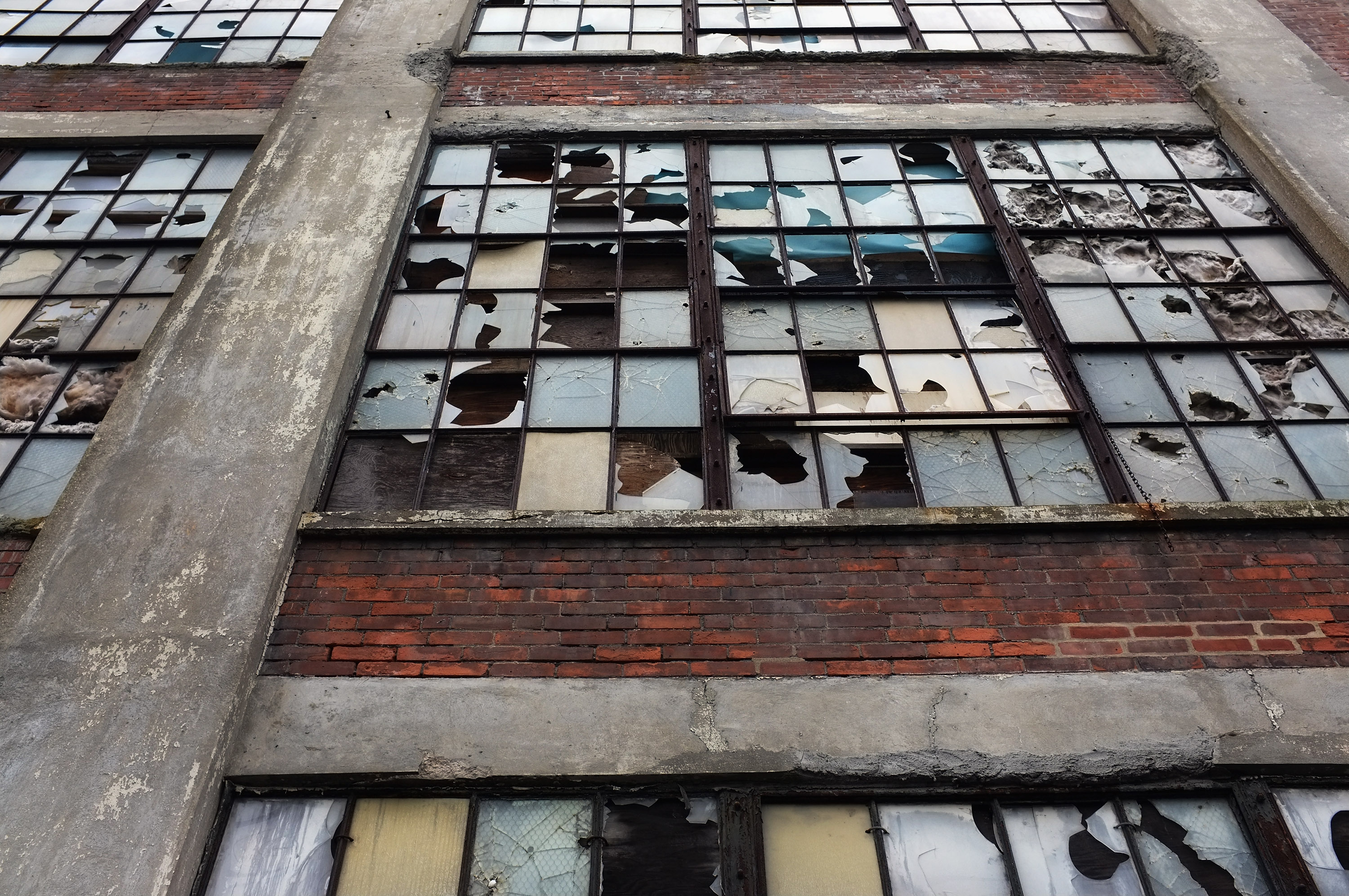
A free daily email with the biggest news stories of the day – and the best features from TheWeek.com
You are now subscribed
Your newsletter sign-up was successful
The movement against American racism recently got a big boost from a new project called "Campaign Zero." The racial justice activists behind Campaign Zero hope that by reforming the police and courts, and improving community oversight, they can eliminate unjust police violence.
This is a promising and important agenda. However, it's worth examining what a narrow focus on police violence risks leaving out. Economic factors, particularly poverty, are deeply entwined with racist outcomes and police violence. To truly fight racism, we have to fight poverty, too.
Let's look at several social indicators broken down by race and class. Matt Bruenig helpfully compiled a few here, using educational status as a proxy for class. First, here's the uninsurance rate by race and class in 2013 (before ObamaCare took major effect):
The Week
Escape your echo chamber. Get the facts behind the news, plus analysis from multiple perspectives.

Sign up for The Week's Free Newsletters
From our morning news briefing to a weekly Good News Newsletter, get the best of The Week delivered directly to your inbox.
From our morning news briefing to a weekly Good News Newsletter, get the best of The Week delivered directly to your inbox.
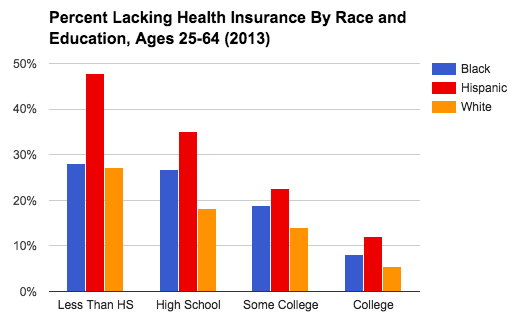
Second, here's the employment-to-population ratio (the fraction of the population with a job) among prime-age workers, by race and class:

Studies show that in general, blacks have an unemployment rate consistently about twice that of whites. Much of that can be chalked up to vast joblessness among lower-class blacks.
All this of this demonstrates that when a population is clustered at the bottom of the socioeconomic ladder, "universal" benefits like full employment and government health insurance would necessarily benefit them disproportionately. For example: A 2009 Harvard study estimated that about 45,000 people died annually due to lack of health insurance. Due to ObamaCare, the uninsurance rate has fallen by about a third since then, with declines concentrated among lower-income people and minorities. White uninsurance fell by 4.5 percentage points — but the black rate fell by 8.9 points. Certainly, many thousands of minority lives have already been saved by this policy.
Now let's look at the criminal justice system. Here's the lifetime risk of incarceration among a cohort of men born between 1975 and 1979:
A free daily email with the biggest news stories of the day – and the best features from TheWeek.com
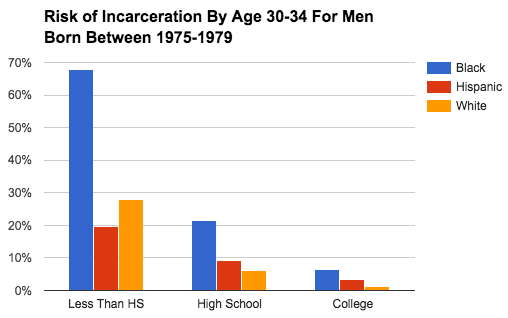
Finally, here's a chart I produced (from a study by the Prison Policy Initiative) of the pre-incarceration incomes of 27- to 42-year-old Americans who end up in prison, compared to the non-incarcerated median, by race. (It's not an ideal measure, and the data is 10 years old, but it's the only one we have.) For nearly every group, pre-incarceration income is about half that of the non-inmate population:
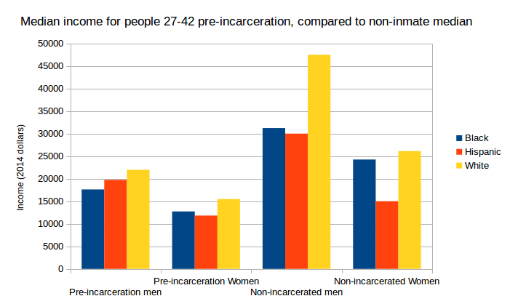
So what should we make of all this? First of all, while there is a large class disparity within races, there is still generally a disadvantage between races at every stage of the class ladder. Class does not fully explain racism.
That said, the class differences within races is often staggering. For prison, the difference in lifetime risk of incarceration is something like ten times as great for low-class blacks as it is for high-class blacks. If we assume that the police are generally arresting the same people they interact with generally, then something similar likely holds for police shootings. What accounts for this?
Poverty, I will argue.
Now, given the generally poor quality of data on poverty and crime, it is not possible to construct an ironclad statistical argument to this end. But there is a very strong circumstantial case. Here's the poverty rate by race and class, once again heavily concentrated among low-class minorities:
Why might poverty be responsible for worse outcomes in the criminal justice system? As Reiman and Leighton argue in their book The Rich Get Richer and the Poor Get Prison, the less money you have, the more merciless the system is. Poor people are disproportionately investigated, arrested, and charged. Typical poor crimes (burglary, assault, etc.) are treated vastly more seriously and aggressively than typical rich crimes (like fraud or tax evasion) where the really spectacular thefts happen.
When they are arrested, poor people often can't afford a good lawyer, forcing them into relying on an overworked, underpaid public defender. Poor people often can't afford bail, like a New York man who was arrested for possessing a drinking straw (the cop thought it was drug paraphernalia) and didn't have bail of $1,500. That meant he spent three weeks in jail while a lab tested his straw, during which time he was brutally assaulted. In general, being broke means the criminal justice system treats you like dirt.
On the other hand, while rates of drug crime are about even across class, poor people do commit more violent crime — very often against each other, as crime victimization rates are also vastly higher among the poor. Though the overall relationship between economic conditions and crime is quite complex, other things being equal, criminals are disproportionately poor. Economists and sociologists point to how schools tend to fail in high-poverty, segregated districts, how material deprivation makes stealing more attractive or even necessary, greater rates of lead poisoning among the poor, and how the police tend to turn into a despised occupying force in poor neighborhoods, among other factors.
Putting all this together: If the rate of racist outcomes is vastly higher among low-class minorities than it is among high-class ones, and that is to a large degree due to greater poverty among low-class minorities, then abolishing poverty would eliminate great chunks of structural racism.
How to fight poverty? Simple: The government should ensure that everyone always gets enough income to get them over the poverty line. Quite literally, just hand out money until poverty is gone.
It sounds too good to be true, but it's really not. That's how all extremely low-poverty nations get there. In fact, many pieces of such a plan are already in place in the United States. Social Security reduces poverty among elderly people from 47 percent to 9.5 percent (and among elderly blacks from 51 percent to 17 percent). The Earned Income Tax Credit reduces overall poverty by 2 percentage points, and among blacks by 3 points.
Going further, increases in Social Security could wipe out poverty among the elderly and disabled. A child allowance of only $300 per month would cut overall poverty by 25 percent, and child poverty by half. Increases in the EITC, food stamps, general economic stimulus, and pro-union policies would distribute more to workers and lower the poverty rate even more. Keep adjusting those until poverty is gone. It would cost something like $175 billion annually (about a quarter of military spending), if you did it on the cheap.
This has the further benefit of being a relatively simple policy. By contrast, the agenda put forth in Campaign Zero is an extremely difficult hill to climb. Policy-wise, it will likely take years if not decades for reform policy to bend the culture of hundreds of different recalcitrant institutions. Body cameras may eventually stop police from shooting people on a whim, for instance, but it didn't stop Samuel DuBose's killer. Stopping prosecutors from working hand in glove with the police will be very tough. Community oversight could potentially get captured by white reactionaries. Limiting the appeal of law enforcement for insecure, racist bullies will be hardest of all. And that's if the whole business succeeds quickly.
Politically, it's a safe bet that police are going to fight reform every step of the way. And since the police are the third-most trusted institution in the country, even liberal Democrats (especially the ones running big cities) usually hesitate to take them on. New York City has its most left-wing mayor in a generation, but even he apparently didn't stop the NYPD from spying on Black Lives Matter protests. Others are far worse.
What's more, many of the worst police departments are small or rural. The (correct) call for action on the federal, state, and local level thus implies literally tens of thousands of simultaneous political battles. Republicans control most state legislatures and a great many local governments, and they are far less sympathetic — if not outright hostile — to police reform.
Of course, abolishing poverty would also be a very steep political battle — precisely because it would benefit minorities the most. But the nation has already gone some distance towards abolishing poverty, so getting the rest of the way isn't hard to imagine — and institutions like Social Security already exist, and can be easily scaled up. Best of all, it could all be accomplished in one swift stroke.
Again, that's not to knock the Campaign Zero agenda in itself. Reforming the police is vital and necessary work. But a great complement to changing how police operate is simply trying to change the balance of power between the cops and poor minorities. And in a capitalist country, money is power.
Ryan Cooper is a national correspondent at TheWeek.com. His work has appeared in the Washington Monthly, The New Republic, and the Washington Post.
-
 Local elections 2026: where are they and who is expected to win?
Local elections 2026: where are they and who is expected to win?The Explainer Labour is braced for heavy losses and U-turn on postponing some council elections hasn’t helped the party’s prospects
-
 6 of the world’s most accessible destinations
6 of the world’s most accessible destinationsThe Week Recommends Experience all of Berlin, Singapore and Sydney
-
 How the FCC’s ‘equal time’ rule works
How the FCC’s ‘equal time’ rule worksIn the Spotlight The law is at the heart of the Colbert-CBS conflict
-
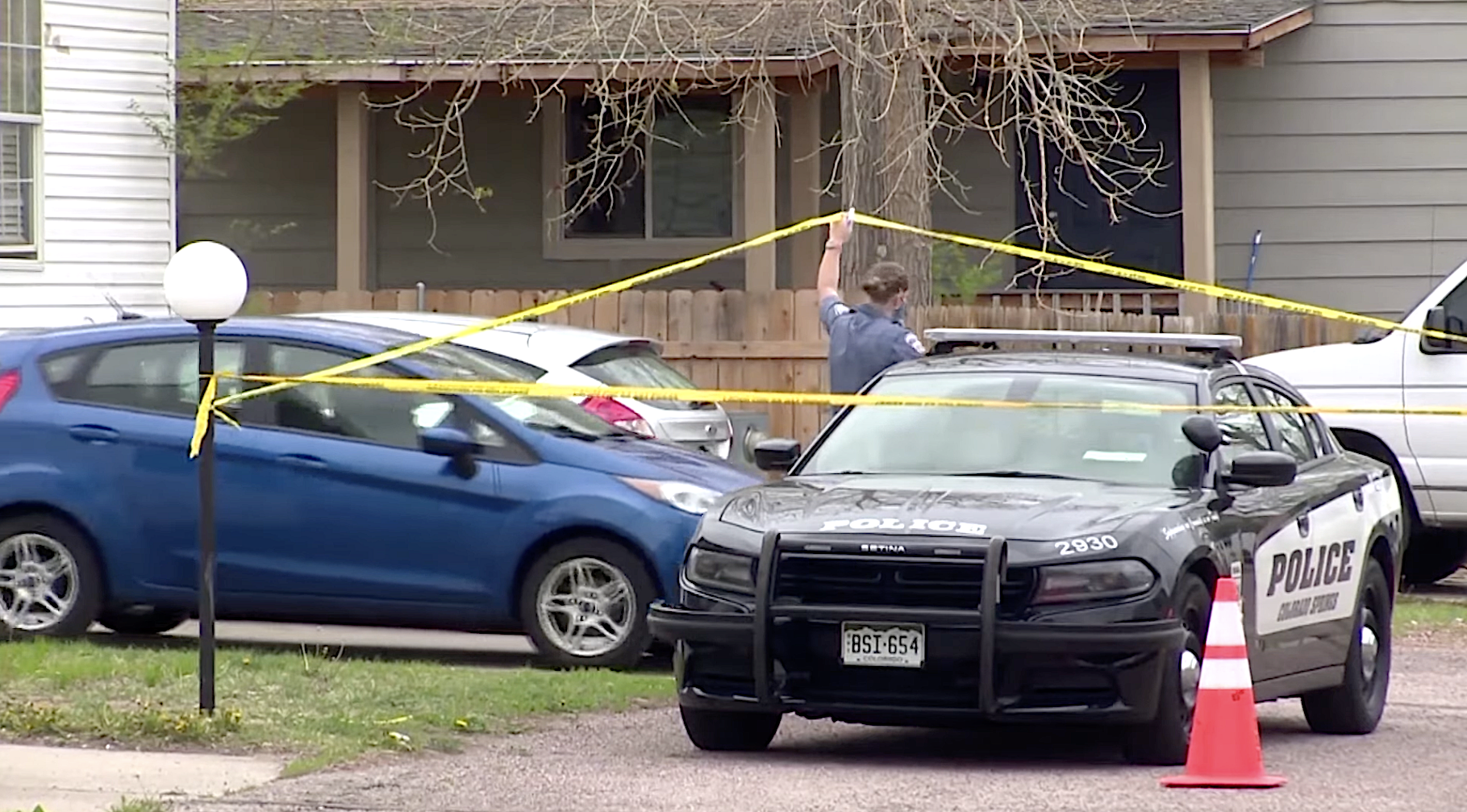 Gunman kills 6, himself at Colorado Springs birthday party
Gunman kills 6, himself at Colorado Springs birthday partySpeed Read
-
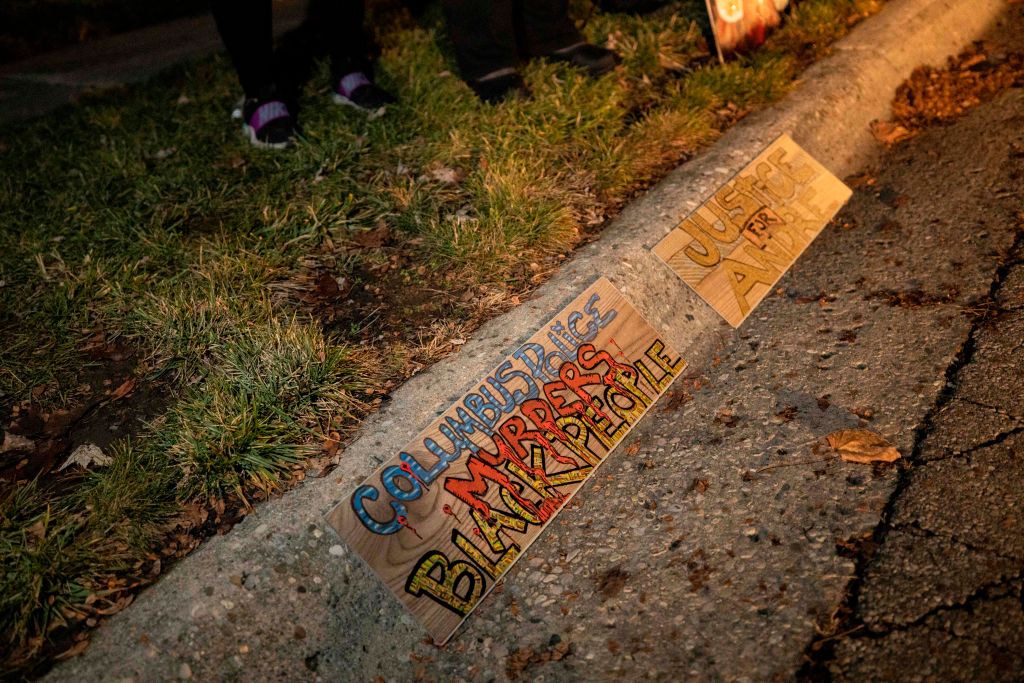 Columbus police fatally shoots Ma'Khia Bryant, 16, quickly releases body-cam footage
Columbus police fatally shoots Ma'Khia Bryant, 16, quickly releases body-cam footageSpeed Read
-
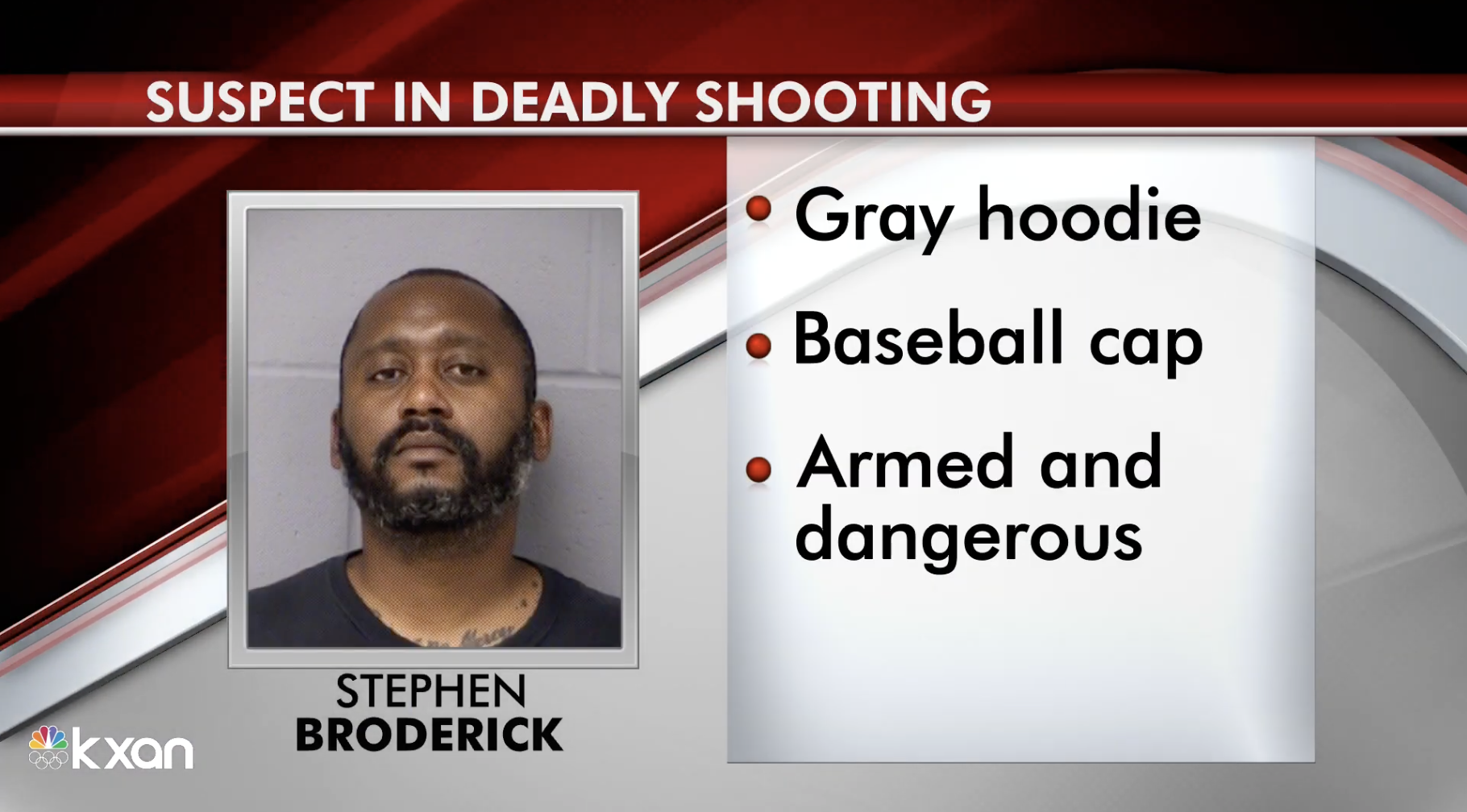 Austin police, feds searching for ex-sheriff's deputy accused of killing 3, in Sunday's 2nd mass shooting
Austin police, feds searching for ex-sheriff's deputy accused of killing 3, in Sunday's 2nd mass shootingSpeed Read
-
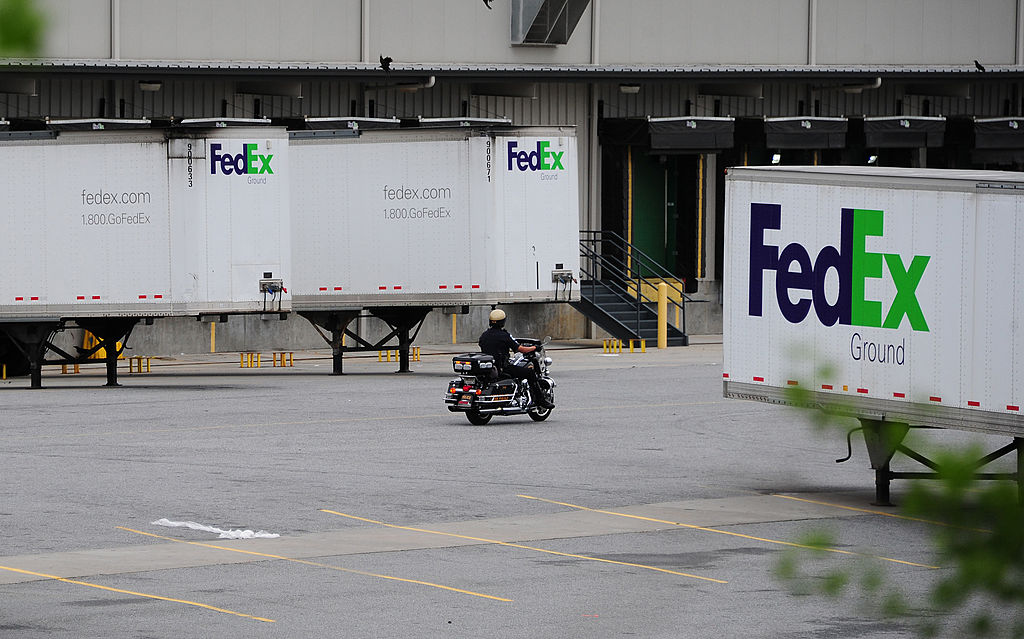 At least 8 dead in Indianapolis FedEx shooting
At least 8 dead in Indianapolis FedEx shootingSpeed Read
-
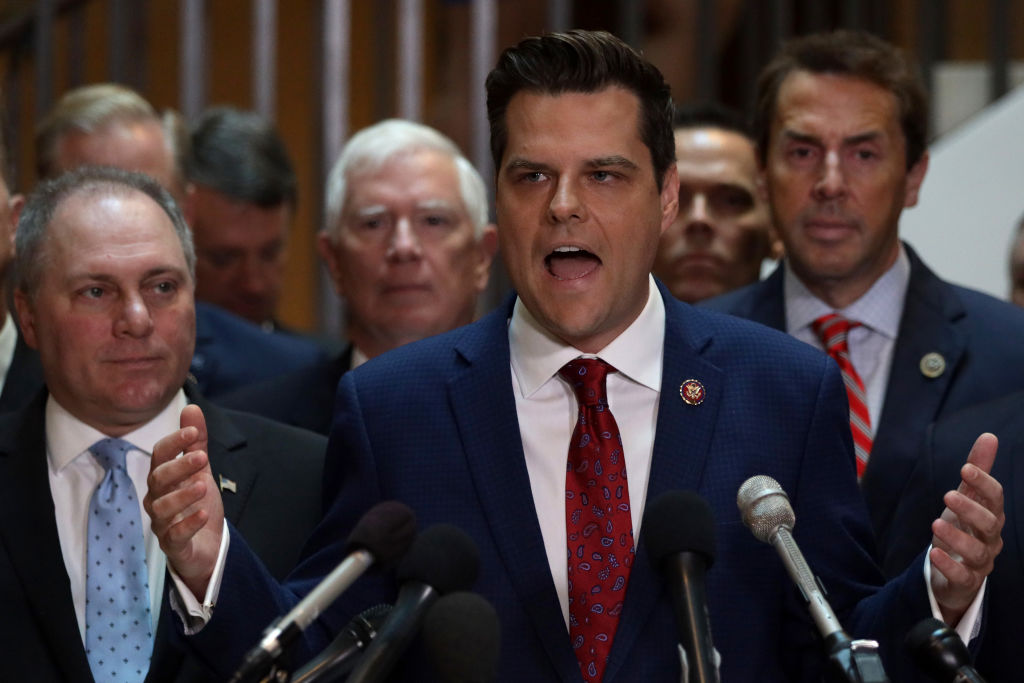 Scalise says GOP will 'take action' on Gaetz if DOJ moves ahead with 'formal' case
Scalise says GOP will 'take action' on Gaetz if DOJ moves ahead with 'formal' caseSpeed Read
-
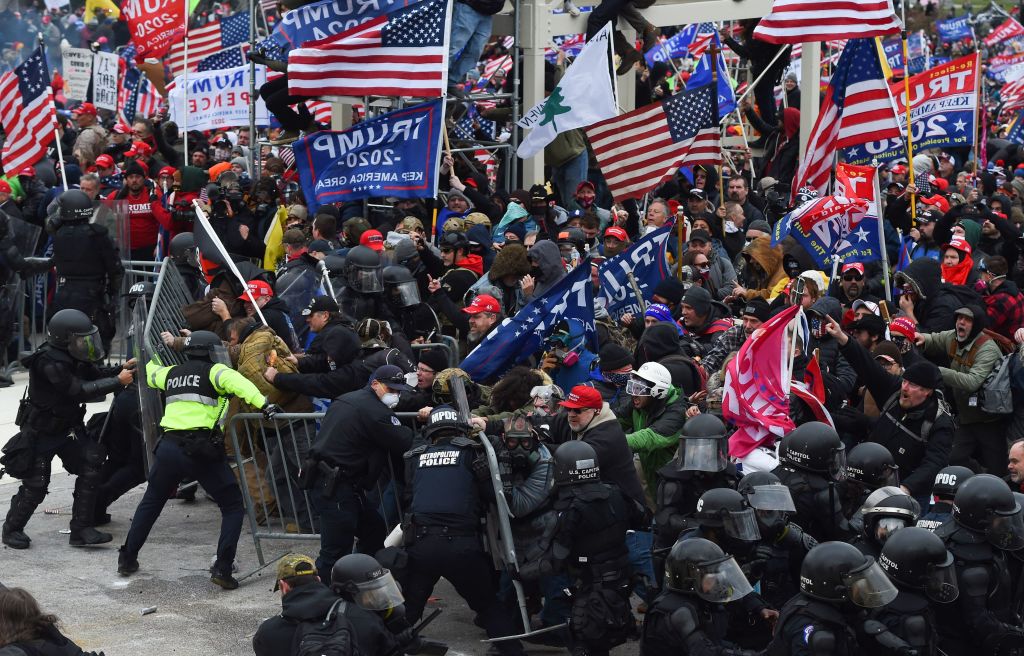 Watchdog report: Capitol Police knew about potential for violence on Jan. 6, but held back
Watchdog report: Capitol Police knew about potential for violence on Jan. 6, but held backSpeed Read
-
 Former classmate arrested in 1996 disappearance of college student Kristin Smart
Former classmate arrested in 1996 disappearance of college student Kristin SmartSpeed Read
-
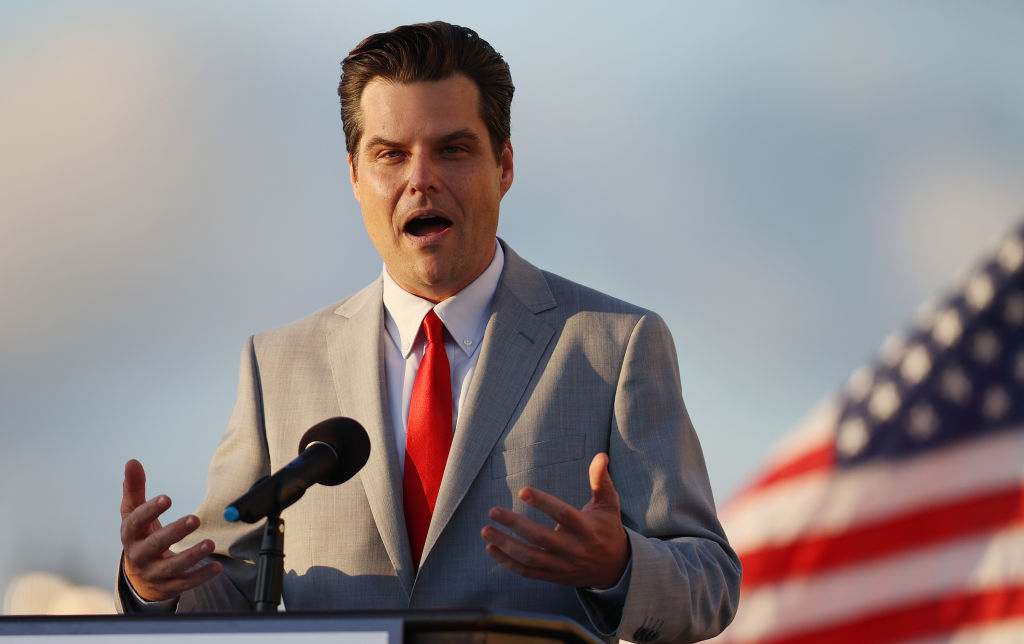 Report: Gaetz associate has been cooperating with federal investigators since last year
Report: Gaetz associate has been cooperating with federal investigators since last yearSpeed Read
